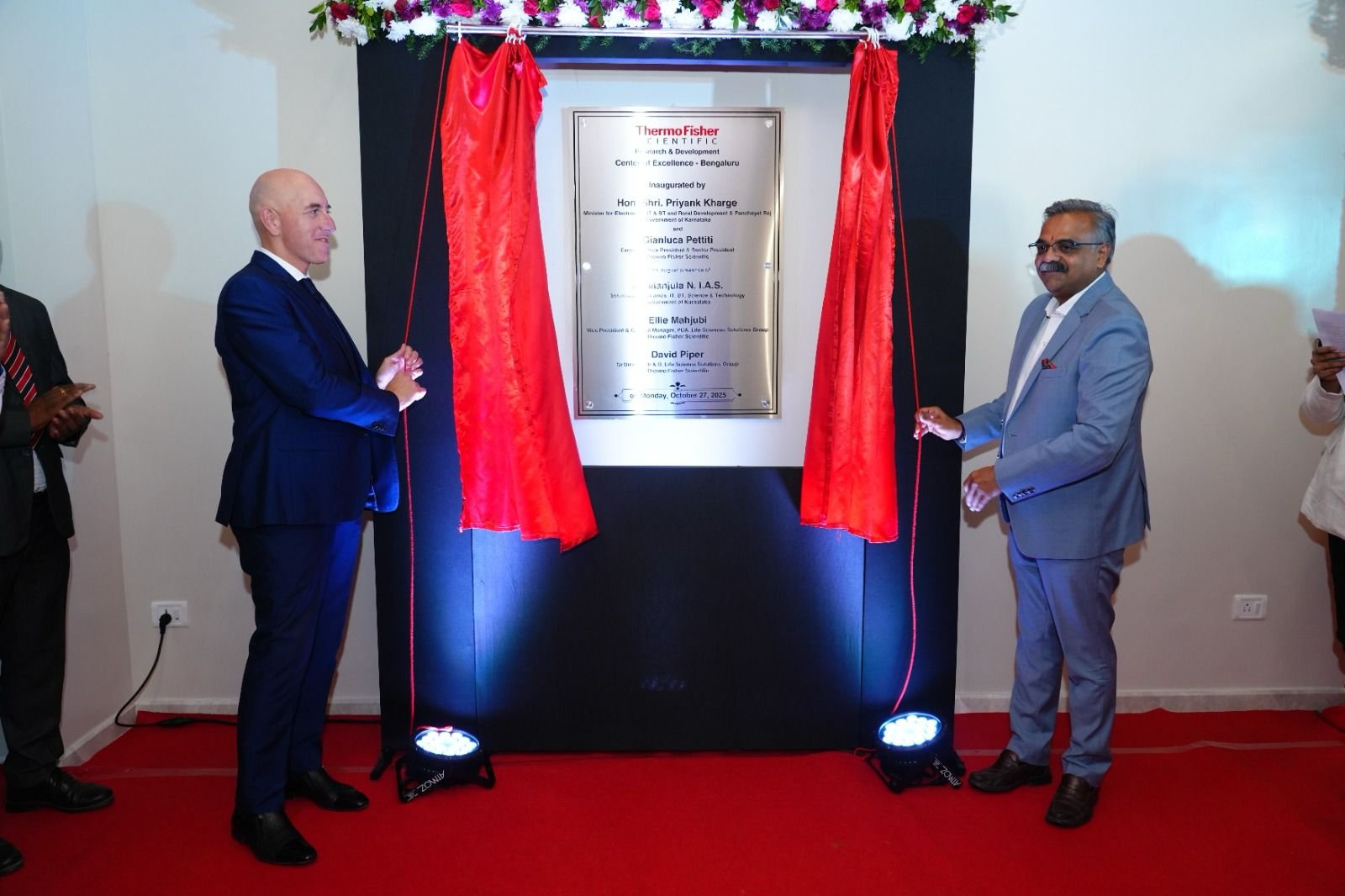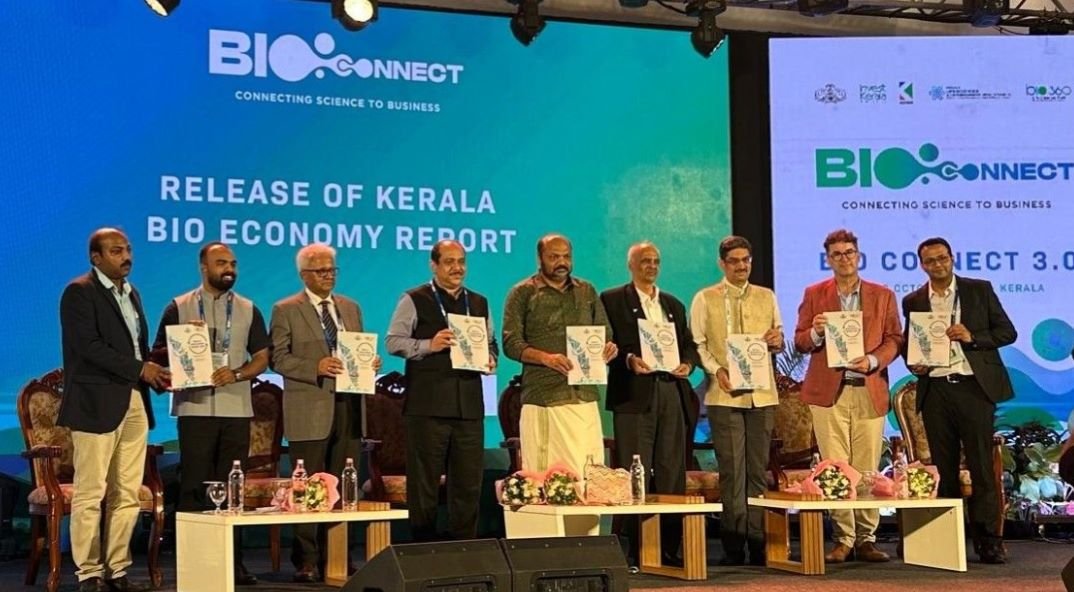'Fundamental challenges in Life Sciences similar around the world'
December 29, 2014 | Monday | Interviews | By BioSpectrum Bureau
'Fundamental challenges in Life Sciences similar around the world'
Mr Kevin Julian, MD, Accenture Accelerated R&D Services
Accenture has also formed a Life Sciences Cloud Coalition with pharmaceutical giants including Eisai, Merck and Pfizer, aiming to bring about innovation and digitally support various R&D functions thereby accelerating drug discovery process while maintaining quality and low costs.
Mr Kevin Julian, MD, Accenture Accelerated R&D Services, spoke exclusively to BioSpectrum's Raj Gunashekar, sharing his views on how the cloud can improve patient outcomes, bolster R&D efficiency, and the future of cloud in Life Sciences organizations.
Q: Tell us the uniqueness of Accenture Life Sciences Cloud.
Mr Kevin Julian: This one started with a client need. One of our clients made a strategic decision to externalize R&D, which prompted the need for a technology platform to aggregate and analyze data from a variety of sources.
Accenture and Oracle partnered to address the client need, and the result of this collaboration laid the foundation of the ALSC.
There are several unique aspects to it including:
- A focus on the data: The cloud brings together multiple internal and external data sources across clinical, safety, regulatory and operational functions into a single analytics platform. It doesn't seek to replace existing valuable technology systems but rather brings data for those systems together to create actionable insights to accelerate drug development and improve patient outcomes.
- Built by the industry for the industry: The ALSC Coalition was created along with the platform bringing together like-minded industry leaders to set the direction for the platform and share the investment, risk and value.
Q: Does this platform give strong competition to IBM's Watson?
Mr Kevin Julian: Our platform is a tailored solution that addresses specific R&D challenges and built together with leading Life Sciences companies to address those challenges. While built on leading high performance hardware and analytics solutions from Oracle, we feel the real value in our platform comes from the solutions it can provide to industry above and beyond its impressive processing capabilities.
Q: Do you intend to work with other drug makers alongside Pfizer and others?
Mr Kevin Julian: Yes. Accenture has formed a Life Sciences Cloud Coalition with pharmaceutical companies like Eisai, Merck, Pfizer and others. There are other companies involved in the coalition as well.
Q: What trends do you see in digitizing R&D in Life Sciences organizations?
Mr Kevin Julian: Today's Life Sciences organizations are under ever-increasing pressure to improve productivity at less cost, and digital solutions will play a major role in that. They serve to create collaborative platforms, advance the consumerization of the healthcare industry, and further create a data-driven enterprise.
For example, our cloud creates a platform for advanced analytics to help improve the quality and speed of critical decision making across the drug development Life cycle.
This reduces the amount of time it takes health products to get to market and improves the safety and efficacy of those products when they get there.
Q: What are the challenges in using the R&D cloud in terms of regulations?
Mr Kevin Julian: Industry regulations, data security and integrity have been priorities since companies started using information technology to support R&D.
These days, the chain of R&D data crosses many boundaries as it follows the long path from research bench to patient to regulatory authority - involving a variety of mobile devices, web-based collection tools, databases, external research partners, and offsite data centers along the way.
In this context, cloud-based solutions are just another link in the data security chain, following the same industry standards for physical and data security as any other.
We have been particularly thoughtful about our approach including partnering with a trusted hosting provider with significant experience serving this industry and utilizing approaches including Private Cloud.
Q: What are the advantages of using the cloud for drug development R&D?
Mr Kevin Julian: Clinical R&D organizations can look to realize benefits through the compilation of clinical, safety, regulatory and operational data into one analytics platform to provide data aggregation and improve the quality and speed of decision-making.
Q: How has been the interest for using the cloud among Life Sciences organizations?
Mr Kevin Julian: Apart from Eisai, Merck and Pfizer, we have seen strong interest from all types of clients ranging from large multinational pharmaceutical to emerging biotech companies, leading CROs and smaller Life Sciences and biopharma companies around the world.
Q: Tell us about the Accenture Accelerated R&D Services. How much of investment has gone into it?
Mr Kevin Julian: Accelerated R&D Services is a business service focused on delivering streamlined and integrated R&D functions that will help pharmaceutical companies bring new medications to patients using amore collaboration and efficient approach.
The company is investing more than $200 million to deliver this fully-integrated, technology-enabled global business services that will drive more efficient and effective development of pharmaceutical products for clients.
Accelerated R&D Services will leverage capabilities of the cloud, mobility and analytics to deliver integrated functions across clinical development, regulatory submissions, pharmacovigilance and market launch predicated on delivering better patient outcomes.
The Accelerated R&D Services helps Life Sciences companies bring drugs to market faster, at less cost and with reduced execution risks using a pay-for-performance business model for business process outsourcing.
Q: Going forward, how do you see cloud-based solutions shaping up clinical investigations?
Mr Kevin Julian: We are executing on a vision to provide an integrated end-to-end eClinical platform for the industry, based on a foundation of data and technology standards.
Whether we are speaking with large multinational pharmaceutical companies or the US, European or Asia-Pacific based Life Sciences companies, we find the fundamental challenges to be similar around the world.









